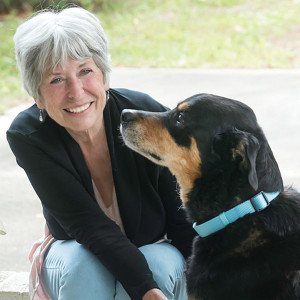Most of us have had those situations in life, I suspect, when we have taken a stand, made a “hasty nest” and clung to it, regardless of its rightness or wrongness or advisability, or even its danger to us or its potential harm to others.
The soft gray-brown little dove was watching us. But she wasn’t moving.
Quincy the dog and I stood at a respectful distance from the sweet little bird as she rested, perhaps nesting, on the ground. It was an ill-chosen place for a nest, I thought — on the corner of a driveway, only slightly under a protective bush, deeply shaded, but terribly open, vulnerable.
I know that some doves do nest on the ground. And their nests can be a hasty affair — just scraps and bits of twigs and grass and pine straw thrown together without much thought or structural soundness. I also know that doves often simply sit and rest on the ground — so I looked carefully, and I saw the nesting materials clearly evident around her body. And the fact that she stayed, even as Q and I slowly approached, made me quite convinced that this was, indeed, her nesting place, her home, her stage for introducing her future fledglings into the world. Not well chosen, indeed. But it was hers and she was obviously committed to it.
And yet, I could understand her for it, relate to it. Most of us have had those situations in life, I suspect, when we have taken a stand, made a “hasty nest” and clung to it, regardless of its rightness or wrongness or advisability, or even its danger to us or its potential harm to others. We’ve planted our tents on a hill too steep, laid our blankets too close to the ocean before high tide, started a walk with horses and dogs and children without regard for looming storm clouds overhead.
I suddenly wanted to help the little dove relocate. I wanted to lift her nest up off the ground and place it on a sturdy branch within the nearby bush. I inched my way toward her, slowly, curiously, half-intentionally, yet without any real plan. Fortunately, Q had taken himself off by then to lie down nearby and chat quietly with the cats who live in that yard — cats who may also have been keeping an eye on my little bird.
But as I got within inches of the dove and her nest, she did as her instincts told her to do: she flew away. And so I was able to look more closely at her nest. And there within it were three small, smooth, stones. They were relatively egg shaped and sized and colored — but they were, in fact, simply stones from the edge of the driveway. It looked as if she had built her nest around them, as an afterthought or a last-minute makeshift home, as a mistaken attempt at some sort of make-believe family. And it made me terribly sad for her.
Of course, I may have imagined her intent all along. My eyes may have seen a nest that wasn’t there at all — just a raggedy mix of twigs and leaves gathered together by the wind and the scuffling feet of passersby, with three small stones coincidentally right at its center. Perhaps it was nothing more than chance that my little dove chose that place to sit and rest as I was coming near — not truly nesting.
I suspect, however, that I was meant to see and notice her that day — I was meant to see her “hatching stones.”
Because I suspect that hatching stones is exactly what I am doing when I hold onto any unreal thought or mistaken perception. I hatch my stones of imagined threat and unforgiven hurts that look like something they’re not, nesting them in words of haste and grief. I hatch my stones of habit and misconception, guarding them, keeping them warm, with nothing but regret to come from it.
I suspect that, too often, we all sit and hatch our stones (in trade for new life and important possibilities) — and then we blame and fear the truth for chasing us off our warm familiar nests.
Q and I resumed our walk then. And my little dove returned as well — to the ground, to her nest, to her stones. And I watched her there, hatching her stones. And I prayed for the wisdom and courage and faith to stop doing the same.
© Marti Healy 2020
























